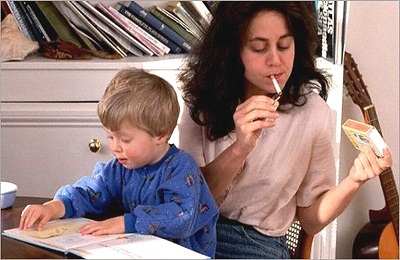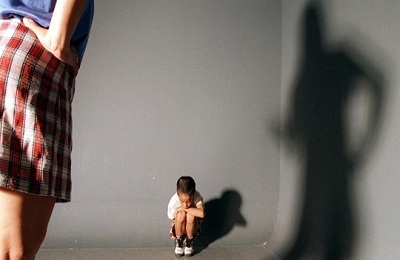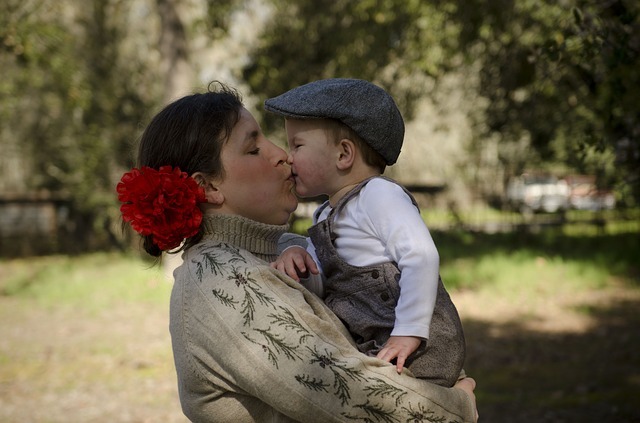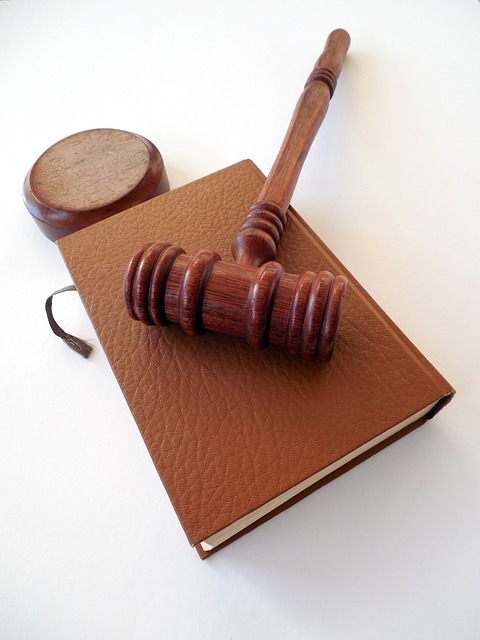There are cases in which the mother does not perform her duties in good faith, and the children may be left unsupervised, subjected to moral violence, psychological or physical humiliation.
The deprivation of the mother ' s parental rights is considered in the development of such situations by the District Court.
Initiating procedure and grounds for disqualification
Under the Family Code, a mother may be deprived of her rights:
- The father of the child living with the minor or separately;
- The guardian or guardian of a minor citizen;
- Representatives of the organization providing for the residence of a minor dependant;
- State guardianship and guardianship organizations;
- Inspection of minors ' affairs.
The guardian may be the legal representative of the guardian and may defend his interests in court by demanding that the mother be deprived of the rights of the child.

- A real wife.
- A woman who has not previously married and is a single mother.
- The ex-husband (the husband may request the withdrawal of maternity rights and file a suit).
The grounds for the withdrawal of the mother ' s rights are dealt with in article 69 of the Family Code of the Russian Federation. Women may be deprived of their mother ' s rights in the following cases:
 She does not fulfil her parents ' responsibilities: she does not arrange for the child ' s upbringing, refuses to communicate, does not provide for the child, does not pay the financial support of the minor (the allowance is not paid for more than six months).
She does not fulfil her parents ' responsibilities: she does not arrange for the child ' s upbringing, refuses to communicate, does not provide for the child, does not pay the financial support of the minor (the allowance is not paid for more than six months).- The mother left her child in a maternity ward, educational, educational and social institution and categorically refused to take him away.
- A woman suffers from chronic alcoholism, drug addiction.
- The mother is seen to be a social behaviour, and there may be precedents for ill-treatment of children, including beatings, moral humiliation, psychological pressuring, and sexual abuse.

- The mother uses the rights of the parent to satisfy her own gain, abuses them by sending minors to wander, forcing them to ask for charity, to steal, etc.
- A woman had deliberately committed a crime against her offspring or her husband, and the judge would rule if the woman had caused harm to her health, the life of her relatives and, if she had attempted to do so, she would have threatened to kill herself.
Under the Family Code, there was no reason to deprive a woman of her mother ' s rights if she was serving her sentence for other crimes: theft, robbery, other offences, even murder.
Documents required
In order for the wife to be deprived of her parental rights, the application must be accompanied by a package of documents, certificates that will support the evidentiary basis of the procedure.
- In a medical institution where the mother receives treatment for alcoholism and drug addiction, she may issue a certificate of the patient ' s state of health and a report of chronic illness.
- If a woman is registered in a psychoneurological clinic, the staff of a public institution can also submit a statement for trial.

- The police department or the precinct may submit certificates, testimony on the mother's behaviour, such as drug-intoxicated fights, drunk driving/drug-induced driving.
- The testimony given by kindergarten teachers about who cares for the child is valid in court.
- If a child is often injured, bruised by the mother or as a result of ill-treatment, a medical examination must be requested; this certificate is also valid in court.
- In order for the wife to be deprived of the right to communicate with children with whom she does not live, a statement may be submitted to the court stating that there are no maintenance payments for a long period of time (at least six months).
The court also draws attention to documents provided by the State guardianship authorities, and representatives of the guardianship and guardianship authorities may give an opinion on the living conditions of minors and indicate how the woman cares for the descendants.
Specific features of the trial
The public prosecutor and representatives of the public authorities must be present at the proceedings, and given the grounds on which parental rights may be deprived of the mother ' s parents ' rights, the judge must hand down the sentence, and it is possible not only to deprive the parents of their rights, but also to order their restriction.
The Family Code emphasizes that the removal of children's rights is a last resort.
Often the court proceedings are delayed, the woman is given time to correct, and if she is willing to get rid of her bad habit, actively seeking employment, repents that she has resorted to child abuse, the district judge has the right to postpone the removal of her parental rights:

- A woman is given a certain period of time to be corrected.
- In lieu of deprivation of liberty, a judge may impose a penalty such as the restriction of maternity rights.
A weak evidence base may lead to the rejection of a claim for parental rights, for example, the absence of a certificate of a woman ' s illness or the failure to conduct an examination of the child ' s beatings and is not recorded in writing.
If the district judge meets the requirements for deprivation of maternity rights, the plaintiff may request that maintenance be withheld from the woman ' s income if no previous recovery has taken place; the court ' s decision to remove the mother ' s rights becomes enforceable and must be sent to the civil registry of the minor ' s place of residence no later than three days.
Consequences of deprivation
In accordance with the Family Code, if a court has ruled on the total deprivation of rights, a woman is legally deprived of a relationship with a child.
- does not have the right to raise children;

- cannot claim them from third parties;
- Does not have the right to contact minors if they are harmed;
- A woman cannot benefit from the child ' s inheritance and does not receive child allowance;
- The mother cannot claim material support in old age or maintenance from the child.
However, since the Family Code provides for alimony payments to dependent minors up to the age of 18, the mother, even if deprived of her mother ' s rights, is obliged to make alimony payments.
The Family Code provided for the possibility of restoring maternal rights.
This procedure is possible:

- If the descendant hasn't reached the age of majority.
- If the minor has not been adopted.
Adoption of a child to other parents is possible six months after the deprivation of maternity rights takes effect, after which the mother cannot claim to be in contact with the child and the possibility of re-establishing the mother ' s rights is denied.
Necessary documents for depriving the mother of parental rights

The most severe legal effect on parents who are unwilling or unable to take due care of their own child ' s upbringing is the deprivation of their parental rights.
The adoption of such a harsher measure is preceded by softer educational and restrictive measures – the removal of a child or the restriction of parental rights. If they have not had the proper influence and the parent's behaviour has not changed, then it makes sense to resort to at least.
The difficulty with the legal realization of the deprivation of the rights of the child is that such a measure can only be applied by a court decision.
In order to file a claim, the person concerned must collect the necessary package of documents to prove the parents' failure to act and their inability to respect the interests of the child, and in some cases to provide evidence that the father or mother is a threat to his or her health or life.
What documents are needed to remove the mother's parental rights?
Legal basis for the deprivation of the right to raise a child
Marriage and family relations are regulated by a number of regulations, the main one being the Family Code, which contains an article (article 69 of the Code) which, in the circumstances referred to in the article, deprives them of this right.
It should be borne in mind that the list of circumstances is exhaustive and not subject to a broader interpretation; therefore, all documents and evidence must confirm the parent ' s inability to fulfil his or her child ' s responsibilities and not affect other relationships (inheritive, property, housing, etc.).
It is also necessary to take into account the requirements contained in the following instruments:
Preparation for filing of a claim
 The process of preparing for the claim of deprivation of parental rights is long and slow, involving the collection of a large number of different certificates, the receipt of reports from various authorities, the receipt of testimony from persons who are in close contact with the child and who can prove that the mother or father has not treated him in good faith.
The process of preparing for the claim of deprivation of parental rights is long and slow, involving the collection of a large number of different certificates, the receipt of reports from various authorities, the receipt of testimony from persons who are in close contact with the child and who can prove that the mother or father has not treated him in good faith.
Self-training is rather burdensome, as it requires time and a certain amount of material cost.
It should also be borne in mind that the compulsory participants in the deprivation of rights proceedings are the guardianship/guardian body and the prosecutor, who, for their part, also collect evidence, carry out the checks prescribed by law and appoint the necessary expertise.
In order to coordinate the activities of the plaintiff, the guardianship authority and the prosecutor, it is advisable to obtain the support of a lawyer (lawyer) specializing in marital disputes.
How do you take away your mother's parental rights?
The deprivation of the mother ' s parental rights is considered to be the most serious penalty imposed on the parent on the basis of the court ' s opinion; it should be noted that the judicial authority rarely issues such a decision, and the grounds for the procedure are laid down in article 69 of the UK and require the provision of strong evidence.
Reasons for starting the procedure

It is not sufficient to file a complaint with the court if the complainant does not have substantial grounds for depriving the mother of her parental rights, in which case the judicial authority will simply fail to consider the case. The main reasons for the removal of the parent and the substantiated evidence are set out in article 69 of the UK, namely:
- Abuse of the mother ' s rights as a parent;
- Serious drug and/or alcohol dependence of a chronic nature;
- Failure to perform direct maternity duties;
- Forcible treatment of their children of a psychological and physical nature (including sexual assault);
- The mother ' s refusal to remove her child from medical, maternity, educational and other institutions without valid reasons;
- The commission of an informed crime against the health and life of the child, his father and other close relatives.
In other circumstances, it is not possible to deprive the mother of her rights to her child, and it is difficult to prove in court the mother ' s improper treatment of her own children.
Considerable arguments in the course of the case include the provision of a medical certificate on the presence of a woman with chronic alcohol or drug abuse, the court ' s opinion on the existence of a criminal record, witnesses ' testimony on the violent treatment of a child, etc.
Two types of procedures for excluding the mother from participating in the life of her child can be identified:
- Refusal of adoptions in the maternity home;
- The general deprivation of parental rights through the courts.
Renunciation of mother ' s rights
Consent to adoption may be granted only if both parents (or one in the case of a single mother) agree to the procedure.
When parents refuse to grant adoption, they are deprived of any rights to their child, but in some cases the court may order the mother to pay alimony.
In fact, the removal of the parent and the loss of his rights to the child occur only after adoption.
Procedure for the voluntary waiver of maternity rights:
- Written declaration of consent to adoption (in relation to a particular person or in general form);
- Notarization of consent (compulsory part of the procedure, pursuant to article 129 of the UK of the Russian Federation);
- Sending an application to the court, the PLO or other organization where the child is left behind;
- Waiting for the judicial adoption order to take effect.
The general procedure for depriving the mother of parental rights — where to begin?

If the child is voluntarily abandoned or the mother ' s rights are forcibly withdrawn, the proceedings must be heard in court.
The procedure for the removal of the mother is the following sequence:
- Write a claim for deprivation of maternal rights and collect the necessary documentation;
- Sending papers to the district court;
- Commencement of civil proceedings and adjudication in favour of the plaintiff or the defendant ' s mother.
Who can file a lawsuit?
Only citizens referred to in article 70 of the Code of Criminal Procedure may be brought before a judicial authority:
- One of the parents;
- The prosecutor;
- Officers of authorized public bodies working for the protection of children ' s rights and interests (e.g. PLO);
- Citizens with parental responsibilities (e.g. guardians).
Where should I go?
On the basis of articles 24, 29 and 28 of the Code of Criminal Procedure of the Russian Federation, an action is brought before the district court at the location of the defendant ' s mother or the claimant ' s residence where certain circumstances exist (e.g. it is not possible to determine the actual whereabouts of the mother).
Documentation and action

The court proceedings begin with a request for the deprivation of the mother's parental rights, which is written and contains information on the plaintiff, i.e. the author's mother's parents' rights.
The complainant's mother, the reasons for the application to the court, the substantiated evidence of the mother's guilt in failing to comply with her parental obligations.
If a PLO or a prosecutor is contacted by a judicial authority, the action must include the reasons why the child ' s father or representatives were unable to file the application in person.
According to article 132 of the Code of Criminal Procedure, the claim is supplemented by the following documents to deprive the mother of her parental rights:
- the representative ' s power of attorney and the photocopy of his passport (if the applicant acts through the representative);
- The birth certificate of the child;
- papers confirming the dissolution of the marriage (if any);
- A copy of the complainant ' s passport;
- Evidence of the mother ' s inability to perform her duties as a parent (under article 69 of the UK of the Russian Federation).
Provision of a court order
The court may decide in favour of the applicant (i.e. the deprivation of her mother ' s rights) or in favour of the defendant; the trial takes place in the presence of the PLO and the prosecutor (2, part 70, of the UK). 3 days ' notice of the court ' s change of the birth record (5, part 70, of the UK) is sent to the registry authorities.
Loss of mother ' s parental rights: grounds, procedure
 The deprivation of parental rights is a complex procedure, a compulsory measure for the benefit of the child, and what are the features of the procedure if it is carried out with respect to the mother of the child, we will describe in our article.
The deprivation of parental rights is a complex procedure, a compulsory measure for the benefit of the child, and what are the features of the procedure if it is carried out with respect to the mother of the child, we will describe in our article.
It is believed that the extreme and tragic procedure of the family, such as the deprivation of parental rights, is more often applied only to the father of the child; in fact, this is far from the case; statistical studies have shown that a large proportion of the so-called "adversarial parents" are mothers of the child, so the deprivation of maternity rights is also very common.
Loss of mother ' s rights: grounds
The deprivation of parental rights is certainly a traumatic phenomenon, not so much for irresponsible mothers and fathers, but for a child, because separation from parents has an extremely negative effect on his psychological well - being.
However, this cannot be a cause for not applying the coercive measures provided for by law when it comes to protecting the rights and interests of the child.
For example, if a mother refuses to take the child out of the maternity home, does not give him the attention he needs, does not feed, treats, educates, and educates, all of which may lead to the restriction or deprivation of the mother's parental rights.
In accordance with articles 63 to 64 of the Family Code of the Russian Federation, both parents have the same responsibilities with regard to the child, and both parents are equally obliged to take care of the child ' s physical, intellectual and spiritual development and to protect his or her legitimate rights and interests.
This includes not only the obligation to care for the child ' s food, clothing and shoes, clean and warm accommodation, but also the creation of certain conditions for the full development of the child ' s personality.
If one or both parents deliberately fail to perform the duties assigned to them, it is advisable to introduce a procedure for the deprivation of parental rights.
It matters!A child ' s mother may be deprived of her parental rights only if she fails to perform her duties on her own fault, if it is not her fault (e.g. due to limited legal capacity), the deprivation of her parental rights is not possible.
The grounds on which a mother may be deprived of her parental rights are listed in the legislation in force, which is a complete and exhaustive list:
- When the mother fails to perform her parental duties - repeated cases of child starvation, systematic absence of clothing during the season, and a permanent violation of the right to medical care;
- Random evasion of maintenance;
- The moral violence of the parent against the child is to smite the child, to insult him, to humiliate him;
- Coercion of a child to commit unlawful acts - drug or alcohol use, fraud, theft, prostitution;
- The mother ' s dependence on alcohol or drugs;
- The mother's refusal of the child is the official refusal to take the child out of the maternity home, educational organization or medical institution, the lack of interest in the child for six months;
- The commission of an offence against his or her child.
It matters!The grounds for denying the mother ' s parental rights must not only be listed in the statement of claim but must be documented and have an evidentiary basis; otherwise, they will not be taken into account by the court.
There are also circumstances that cannot be invoked before a court:
- Single mother status;
- The minor age of the child ' s mother;
- The material situation of the mother;
- The marital status of the mother - divorce, civil marriage;
- Mother ' s health condition.
Procedure for the deprivation of parental rights of the mother of the child
The deprivation of parental rights by the mother is a rather complex and lengthy procedure that requires a thorough analysis of all the circumstances of the case, a thorough examination of documents and other evidence, in order to avoid an unreasonable decision.
There are certain steps in implementing the procedure and the rules, considering the first one – who has the right to file a claim for withdrawal of the mother's parental rights:
- Directly the father of the child;
- The guardian, guardian or adoptive father;
- The guardianship and guardianship authorities;
- The prosecutor;
- Representatives of the medical or educational institution where the child is staying.
It is important to note that the law does not provide for the right of direct recourse to the courts of other persons, including grandparents, uncle/daughter and other relatives, neighbours, friends and school teachers, but does not prohibit persons who are concerned from applying for protection of the interests of the child before the guardianship and guardianship authorities or the prosecutor.
In order to do so, the complainant must submit a written statement to the appropriate authority indicating the request to protect the child from violations by his mother.
The person to whom the application has been addressed must, within three days of receipt of the document, consider it and issue an order.
The authorities may check and prepare an appeal to the court to remove the mother ' s parental rights or order the mother to correct her behaviour towards the child.
Document before the court in the case of deprivation of the mother ' s parental rights
When the grounds for the procedure have been determined, the plaintiff must prepare a statement of claim and gather the necessary documentation to bring the case before a judicial authority.
- The birth certificate of the child;
- A certificate of registration or dissolution of marriage (if any);
- The child ' s residence certificate;
- The characteristics of the child from kindergarten, school, sports section and others;
- A psychologist ' s report on the psychological state of the child of the guardianship and guardianship authorities;
- The characteristics of the mother and father in the place of residence, from the workplace and others;
- A survey of the living conditions of the child and the mother;
- A statement of maintenance arrears (issued by bailiffs);
- If the mother has been convicted of child abuse or for other reasons, a court judgement shall be included in the list;
- Police call certificate (if called);
- Medical report on injuries sustained by the child
- Medical report on mother and father ' s health;
- A certificate on the income of the father and mother;
- A document that confirms the father ' s right to a dwelling where the child will live after the deprivation of the mother ' s rights;
- Other documents which may confirm the grounds for depriving the mother of the right to raise a child.
The procedure for the deprivation of maternal rights: a step-by-step plan
- The person acting in relation to the interests of the child should determine the grounds for the deprivation of parental rights and gather the necessary evidence from the relevant institutions and bodies (e.g., in the event of physical or mental harm to the child, coercion to commit unlawful acts - to contact the police or the prosecutor's office; in the case of a malicious failure to pay maintenance - to the bailiffs, who will confirm the amount of the debt and the time frame).
- Once the documents have been collected, the person must contact the guardianship and guardianship authorities to describe the situation and provide the documents available, and it is recommended that the child ' s father, who has the legal right to bring the matter before the court in person, should also be contacted directly.
- The specialist of the guardianship and guardianship department must accept the application, assess the existence of valid grounds, file a case, conduct a check and inform the child ' s mother, and then draw up a final report, with the child ' s mother being given a warning and a period of time to correct the situation.
- In cases where there has been no positive change in the mother ' s behaviour, the deprivation of rights is referred to the court in the mother ' s place of residence.
- The court considers the case file and decides on the deprivation or restriction of the mother ' s parental rights.
- On the decision of the court, the child is handed over to the father, guardian or guardian or to an educational institution.
- A mother who has been deprived of her parental rights will be forced to recover alimony as well as maintenance debts if they arose during the previous period.
Important aspects of judicial proceedings
- In accordance with article 70 of the Family Code of the Russian Federation, judicial proceedings concerning the deprivation of parental rights of the mother are heard strictly in the presence of the procurator and the guardianship and guardianship authorities.
- During the trial, the amount of maintenance payments and the child ' s place of residence will be determined.
- Since deprivation of parental authority is an exceptional measure, for the first time the court may limit itself to preventive measures – limiting parental authority or using a warning from the guardianship and guardianship authorities.
- In the case of preventive measures, it is only 6 months after the court decision that the mother is granted this time limit for correction.
- If the case is settled by a court, within three days, a decision is sent to the civil registry to amend the birth record of the child; from then on, custody of the child can be established, but adoption is not possible for another six months.
Consequences and duration of deprivation of parental rights
The deprivation of parental rights was an indefinite measure, but the law provided an unreliable parent with an opportunity to correct and restore their rights.
In order to do so, one should change one ' s way of life and apply to the guardianship and guardianship authorities and to the courts.
If the child is not adopted at that time, the State institutions will meet the child ' s mother, as the loss of the child ' s communication with the mother, when it is still possible to correct, does not justify itself after years.
Note that, once the child has reached the age of 18, it is impossible to restore the mother ' s rights.
How can a mother who drinks be deprived of her parental rights?
Under the law, the existence of alcohol dependence is a valid basis for filing a claim for deprivation of parental rights in court.
In practice, however, if the defendant is sober in court, the court almost always does so and gives him a chance to reform, only by restricting the parent's rights, but not by depriving him of them.
During the reform period, the guardianship and guardianship authorities exercise strict control over the defendant ' s family, carry out checks and record changes in the relationship between the mother and the child and, as a result of the time available for the correction, if the mother ' s behaviour has not changed, she shall be deprived of her parental rights.
When applying to court for the deprivation of parental rights of an alcoholic mother, it is necessary to attach documents confirming this fact — a certificate from the police or first aid centre, a psychoneurological clinic, testimony from colleagues in the workplace or neighbors in the area of residence.
Disenfranchisement of single mothers ' parental rights
This procedure is carried out on legal grounds in three cases:
- If the child ' s mother is not married and has not indicated his father ' s data at the time of birth;
- If the woman was married at the time of the child ' s birth or indicated to the child ' s father, but the father ' s subsequent paternity was challenged;
- If the woman has undergone the adoption procedure without being married.
Reasons for depriving a single mother of parental rights
It should be noted initially that the status of a single mother does not give a woman special privileges over her parental rights, i.e. a single mother may be deprived of her parental rights on exactly the same grounds as parents from full families – evasion of parental responsibilities, child abuse, alcoholism or drug addiction, etc.
Who can take away a single mother's rights?
In accordance with the provisions of the family law of the Russian Federation, only the court may deprive a citizen of his or her parental rights, and the procurator and representatives of the guardianship and guardianship authorities must be involved in the case; in general, the procedure for depriving a single mother of his or her parental rights is no different from the same procedure in which the defendant is a parent from a full family.
In any case, the deprivation of parental rights was a measure of last resort and the court resorted to it in exceptional cases; no positive decision was ever made in a case where there was no certainty.
Loss of mother ' s parental rights: grounds, procedures
The deprivation of the mother ' s parental rights is carried out for many reasons and is fully recorded in the Family Code of the Russian Federation. The deprivation of maternity is an extreme precedent to which the legal authority is obliged. Such severe punishment is imposed after the violation of the child ' s rights by the mother and her failure to perform her parental duties have been proved during the trial.
Why take away the mother's parental rights?
The refusal of parents to fulfil their direct obligations towards the child or young person often results in both physical and mental illness.
The immoral behaviour of the mother and her a social way of life make it impossible to create an environment conducive to the full development of the children, in which case the deprivation of the mother ' s parental rights for not participating in the child ' s life and ill-treatment would save the child.
In addition, there is a material aspect of the aspect: often, by giving birth to a child and leaving it, the absent parent fully benefits from social benefits and benefits.
The deprivation of the mother ' s rights will prevent her from taking advantage of the following opportunities:
- Communicate with the child and therefore influence the child;
- To participate in its development, often raising a child with a social type of parent is made up of penalties and beatings;
- Seek material assistance from an adult son or daughter;
- Claims for inheritance after the death of the child;
- To receive State benefits for children, benefits for mothers with many children, etc.
For the most part, the deprivation of maternity is due to two main factors: to protect the child from the influence of the mother and to leave her without benefits, benefits and maintenance in old age, a fact that sometimes discourages unfriendly mothers from taking care of their lives, since deprivation of material assistance can have a significant impact on the family budget.
Conditions for deprivation of maternity
The grounds for the deprivation of maternity are listed in the Family Code in article 69 and this is done after the sentence has been handed down in court.
In order to eliminate maternity, it is necessary to document violations of a minor ' s rights and breaches of the existing legal order:
- Regular failure to fulfil responsibilities towards the child;
- Six months ' maintenance arrears;
- Written refusal of a newborn in a maternity home;
- Criminal use of parental rights and opportunities;
- The ill-treatment of a child that endangers his or her health;
- Direct danger to the life and health of the minor from the parent;
- Alcohol and mother's drug addiction.
Under what circumstances is deprivation impossible?
It must be understood that the court does not always decide to deprive a parent of her rights when she is unable to provide children with normal living conditions.
The right to a child is not denied if the parent is disabled, mentally disabled or seriously ill, and the woman is left with her maternal rights if she is in a difficult financial situation.
In such cases, the court may hand over a minor to the father, guardian or orphanage, but it will not deprive the mother of her maternity; such a measure may be temporary, for example, until the mother has recovered or the financial situation improves.
And do not be afraid that a child will be taken from her mother unless there is clear evidence that she has not fulfilled her parental responsibilities.
Loss of mother ' s parental rights
Because of various violations, parental rights may be taken not only from the father of the child, but also from the mother. The reasons for this may be different. How can a mother be deprived of her parental rights? How do you do that and what will it take? How does the court decide in the case? How can a mother recover her lost rights? You will learn about it after reading the article.
Reasons and reasons for deprivation of mother ' s parental rights
Both parents are equally responsible for the child ' s condition; only biological or foster parents of the child, whose status is legally confirmed, may take away the child ' s rights; guardians and guardians do not have parental rights.
The deprivation of rights applies only when the parent has committed acts (or omissions) that have caused harm to the child ' s health and well-being, and further residence with the child can only make the situation worse; this measure is applied on the following grounds (as set out in article 69 of the Family Code):
- The mother has systematically refused to perform her own duties as the child ' s parent; such a violation must necessarily be proved.
- For example, she has a severe illness, no permanent work and no job, she lives in a bad apartment, etc. Then the guardianship authorities, if they deem it necessary, or at the request of the parent, can take the child away from her (when she has no father or other relatives), but if the woman is mentally or physically ill, she remains entitled to a minor, but then they will consider whether the child can live with her.
- A parent avoids the payment of maintenance to her child for more than six months.
- The mother refuses to take a child out of her parents' home if there is no valid reason for it; for example, the child is in a difficult condition (born with small weight, trauma and pathology) and needs medical attention and care.
- The abuse of a parent ' s rights has been identified, preventing the child from receiving an education and forcing her to engage in illegal or antisocial activities (begging, prostitution, etc.).
- The abuse of the child has been identified, and it has been confirmed that not only physical but also moral violence has been committed, which has led to mental and psychological impairments of the child.
- The mother threatens the safety of the child.
- A parent suffers from alcohol or drug addiction, although the court does not immediately deprive her of her rights: first, she is given a chance to correct herself by temporarily restricting her rights to the child.
Parental responsibilities (arts. 63 and 64 of the Family Code) are as follows:
- Education and development (both moral and spiritual) of children.
- Child protection and advocacy.
- Child welfare (at every stage of the child ' s maturity).
- The child ' s completion of lower secondary education (a successful completion of the ninth grade).
For the systematic failure to fulfil these responsibilities, the mother may dispose of her parental rights.
A child's abandonment in a parent's home means a decision that is not supported by a valid cause, such as a mother's health problem (which must be confirmed by a court decision).
Abuse of parental rightsis the child ' s coercion to:
- Illegal acts.
- Consumption of alcohol and narcotic substances.
- It's a sexual act.
In general, abuse of a parent ' s rights is not a specific violation; for example, a minor son and a father have decided to go to another country. Mother refuses to take a child on such a trip, so that they both stay at home. In fact, her actions are an abuse of parental rights. However, this is not sufficient grounds for depriving her of her mother ' s rights.
Child abuse has a complex effect (on physical and moral health), which, according to the expert ' s opinion, led to mental and psychological disorders, injuries and disorders.
Mother ' s alcoholism is defined as a chronic condition where a parent has a strong addiction (a pathology she cannot cope with on her own and cannot refuse to take alcohol) to alcohol, which has led to psychopathic disorders and disorders.
The deprivation of rights under this provision is possible only if the court has obtained the opinion of a specialist (who has examined the defendant ' s condition) confirming the existence of such dependence, and there are numerous testimonies from witnesses who have regularly seen the drinking of alcohol by their mother, the defendant ' s intoxication and behavioural changes.
The same provisions apply to the mother ' s use of drugs, which must be consumed on a regular basis and lead to a change in mother ' s health and mental health.
Intentional criminal acts aimed at harming a child are also a serious reason for depriving a child of his or her rights; it is possible to determine the intentional nature of unlawful acts on the basis of article 25 of the Criminal Code of the Russian Federation.
A mother may lose her parental rights if she has committed a planned crime against her father, in the presence of a child, or if she has done harm to her child; such acts may cause severe emotional distress and trauma to the children; and if the occurrence of violations as a result of such acts is confirmed by a specialist's opinion, the mother will be deprived of her rights to a child.
Procedure for deprivation of parental rights
The only way to take away parental rights is through the courts, which are provided for in article 70 of the Family Code.
Even if the child ' s father and mother are in a valid marriage, the first has the right to deprive her of her rights if there are violations listed in article 69 of the Code of Criminal Procedure. The application is accompanied by documents confirming the existence of the grounds listed in the aforementioned article of the Code. The parent applies to the court of residence of the accused or the City Court.
If there is evidence that the child is living with the father, the application may also be filed with the court in the complainant ' s place of residence, in which case the court may leave the child to live with the father.
The statement should be written in a legal style: it should be written in substance, pointing only to facts and evidence, without emotional colouring.
Before filing an application, the State is required to pay 300 rubles; if the claimant is the child ' s father, he does not have to pay the father ' s money.
Application for withdrawal of mother ' s parental rights
The statement of claim must contain the following particulars:
- Name of the court.
- Personal details of the applicant and the respondent.
- Text indicating the situation and the actions taken by the plaintiff, indicating the facts, witnesses and materials of the case.
- Court demands.
- List of documents attached.
- Date and signature of the plaintiff.
It is also better to indicate the contact details of the applicant.
Which documents will be required
First of all, the court should be provided with:
- Birth certificate for a minor.
- Documents on the operation or dissolution of the child ' s parents ' marriage.
- The child's residence certificate.
- It's a bill of payment for the mistress.
The court will consider any evidence of a violation, and the evidence attached to the application will depend on why the mother must be deprived of her child ' s rights:
- She committed a deliberate crime, causing harm to her father or child – this is confirmed by the relevant court decision after the criminal case was heard.
- In the case of child abuse, evidence is collected from medical institutions, doctors themselves, specialists (social workers, psychologists, etc.).
- If maintenance debts have accrued, an account to which the money is sent or a certificate of maintenance arrears provided by the bailiff service is required.
- When a parent is in a difficult financial position, she needs a certificate of income.
- Mother is unable to cope with a child's health condition; then medical facilities need to be checked.
- If the mother is a drug addict or an alcoholic, the certificate from the medical institution becomes evidence.
You can't just let a mother who doesn't pay child support take away her child's rights, and before she loses her mother's rights, the plaintiff has to try to improve the situation himself, if the action doesn't work, then you can try to take her rights away from her.
The guardianship and guardianship authorities, as well as the prosecutor, are also involved in the case, and must verify both parties to the trial before the hearing takes place.
The following may be considered as additional evidence:
- The conclusions of the social workers of the institutions in which the child is registered.
- Certificates to call the police at the baby's place of residence.
- The mother ' s job description.
- A child's development test conducted by a speech therapist, psychologist and doctors.
- The opinion of specialists is that of doctors (on bodily injuries), psychologists and psychiatrists (on mental disorders, etc.).
- The results of an examination of living conditions with Mom.
The court will listen carefully to the views of the child ' s teachers, educators, psychologists and doctors, who are considered to know him personally and are therefore able to explain to the court the influence of the mother on the child (education, physical and psychological well-being).
Claims for deprivation of parental rights
In accordance with article 70 of the Family Code, the application must be submitted by:
- The DA's office.
- PLO.
- The father of the child.
- The child ' s guardian or guardian (which has such status).
In addition to these, a claim may be filed by medical and educational institutions where the child is treated or educated.
Close relatives and affectionate people can only apply for deprivation of their mother ' s rights.
The difference is that in the application the applicant expresses his will, and in the application the request, the procedure for considering the evidence and making the decision is different (it is more difficult to deny the application than it is in the application). The application can be submitted to the guardianship authorities or the prosecutor ' s office.
The plaintiff is the child, but the applicant will represent him.
The claim must specify which particular violation is being committed; if there are several participants in the case, an appropriate number of applications must be made.
The mother herself had no right to waive her rights to the child, but only at the maternity home by writing an application for the child ' s voluntary abandonment.
The Court shall:
- Or take away her mother's rights to a child.
- Or dismiss the lawsuit.
Once the decision is made in the registry, the birth record of the child shall be recorded in the child ' s birth certificate.
Judicial practice
It would be more difficult for the mother to deprive her of her parental rights in the courts, since it was the mother who was most likely to leave the children, and the court proceedings were conducted on the basis of the child ' s interests, health and life, and it was generally felt that the mother was more interested in the matter.
But if reliable evidence has been provided, the testimony and expert opinion that the mother has committed the violations, the rights to the child will be taken away from her. The case file must confirm that if the child is left to live with the mother, it will threaten him:
- Mental and psychological.
- Health and life.
- Moral education and spiritual development.
Having examined the case, the court will appoint the child a guardian. Article 146 of the UK stipulates that a guardian may be a person of legal age. The court will examine the personal qualities and material wealth of all who wish to do so. The applicant will not be able to obtain custody until six months after the date on which the mother has lost her rights to the child.
Denying the mother ' s parental rights in favour of the Pope
For this purpose, the father prepares the application and prepares the required documents. In the application, he requires the child to live with him in the future.
It's going to be hard to take away your mother's license, and it's likely that the court will first resort to less severe measures:
- The mother will receive a warning from the guardianship authorities.
- She's going to be restricted for a while. The restriction lasts six months. She's going to have to fix it. It's only after this period that you can apply again.
Mother ' s capital and maintenance after deprivation of parental rights
After the mother has been deprived of the rights of the child who has been granted the right to the mother's capital, her children are entitled to it, in equal shares. Then the father or guardians write the application, and the certificate is passed to them. However, the mother who has been temporarily restricted retains the mat capital.
With the loss of the right to a child, the mother still has to perform her duties as a parent (under article 71 of the Code of Criminal Procedure), the most important of which is that she is obliged to provide for her child ' s resources. The amount of the payment is fixed by the court, and control over the receipt of maintenance is vested in the bailiffs.
How a single mother and a minor mother are deprived of their rights
All these grounds apply also to a single mother, in which case the only action may be brought:
After hearing the case, the court may leave the child:
- At the orphanage.
- In the case of relatives with appropriate living conditions (then they become guardians).
Mother ' s age cannot be a barrier to the deprivation of her parental rights and is subject to the same grounds as those set out in article 69 of the Family Code.
- Close relatives of the child, both mothers and fathers.
- Father himself.
Duration of withdrawal of mother ' s parental rights
According to the law, a mother shall be deprived of her rights to a child indefinitely until there is a noticeable change in her behaviour or financial situation, and to do so, she shall eliminate the reasons for which she was deprived of her rights.
If her condition has improved and this has been documented, as well as by witnesses and specialists, she has the right to file a claim for her rights, and the application specifically specifies the requirement to live with the child.
As long as he wasn't adopted by another mother by then, or she won't be able to recover her rights, the only possibility would be if the adoption was cancelled by a court order.
Parental rights are valid until the child is under 18 years of age, and if the parent has not restored his rights to the child until his or her majority, then he or she will be deprived of parental rights for the rest of his or her life.
- It loses all the benefits and benefits allocated to the baby.
- Mother is excluded from the process of raising a child, and there is no legal link between them.
- She may be deprived of her maternity rights (if she was singled out after the birth of the child) or of her status as a mother with many children.
- The child has the right to live in the same dwelling, but the court may expel her if the minor does not have to live with her.
- After that, the mother will not be able to claim maintenance from the child in the future.
- She won't inherit from him.
- A child can be adopted by other people.
The court must hear the child ' s own opinion as to whether he wants to live with his mother again.
So the deprivation of parental rights is a complicated process, which is only possible when a court decision is handed down.
The case will examine whether the mother ' s actions and behaviour are grounds for depriving her of her child ' s rights; unfortunately, many children have to be separated from the mother if the court decides that it would be good for them.
As a result, a child with a living mother will either live with his father, guardian, or go to a child's home at all.







